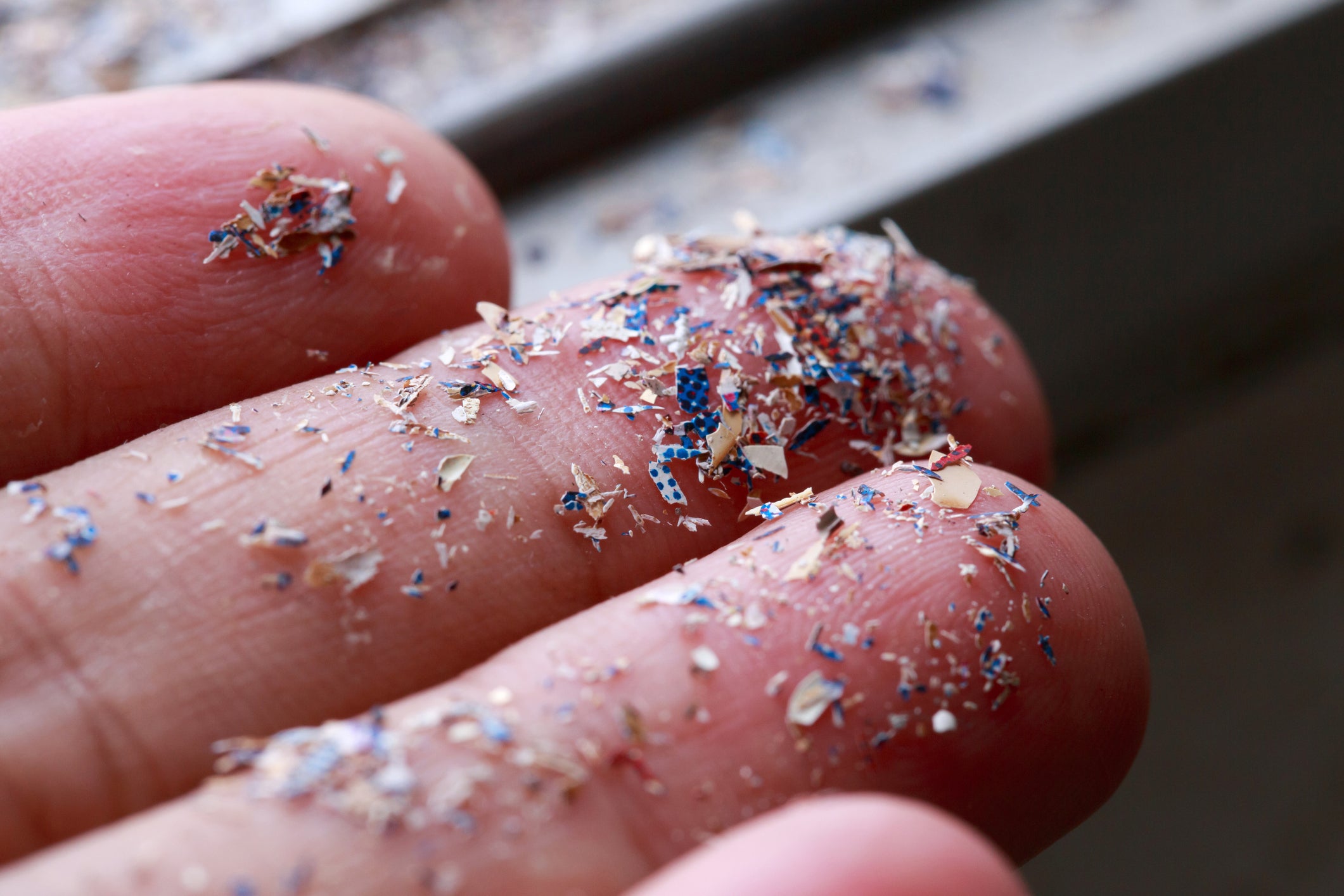Microplastics found to be harmful to human cells
Cell death and allergic reactions as potential effects of ingesting or inhaling high levels of microplastics, the research found.

Your support helps us to tell the story
From reproductive rights to climate change to Big Tech, The Independent is on the ground when the story is developing. Whether it's investigating the financials of Elon Musk's pro-Trump PAC or producing our latest documentary, 'The A Word', which shines a light on the American women fighting for reproductive rights, we know how important it is to parse out the facts from the messaging.
At such a critical moment in US history, we need reporters on the ground. Your donation allows us to keep sending journalists to speak to both sides of the story.
The Independent is trusted by Americans across the entire political spectrum. And unlike many other quality news outlets, we choose not to lock Americans out of our reporting and analysis with paywalls. We believe quality journalism should be available to everyone, paid for by those who can afford it.
Your support makes all the difference.High levels of ingested microplastics could have harmful effects on the human body, a new study reveals.
The small plastic pieces, less than five millimeters long, are known to be harmful to ocean and aquatic life.
This study, led by researchers at the Hull York Medical School and the University of Hull, is the first of its kind to quantify the levels of microplastics that may cause serious harm to human cells.
Evangelos Danopoulos, lead author and PHD student at Hull York Medical School, said that, by analysing available published studies, researchers found that “in toxicology tests, we are seeing reactions including cell death and allergic reactions as potential effects of ingesting or inhaling high levels of microplastics”.
The study compared the concentrations of microplastics that affected cell viability to the concentrations that we are exposed to by ingesting contaminated food and water using three previous studies by Mr Danopoulos and the Human Health and Emerging Environmental Contaminants research group at the University of Hull.
These studies focused on microplastic contamination of drinking water, seafood and table salt and revealed high levels of human exposure to microplastics from consuming these.
The team then compared these levels to the doses that have caused adverse effects on human cells within the toxicology studies.
The toxicology studies reviewed tests for five categories of effects: cytotoxicity (cell death/viability), immune responses (including allergic reactions), whether microplastics can affect the cell’s membranes in any way or cross inside them, the cause of oxidative stress (leads to cell and tissue damage), and genotoxicity (damage genetic information in cells).
A 2019 study in the journal Environmental Science and Technology says it is possible that humans may be consuming anywhere from 39,000 to 52,000 microplastic particles a year.
Mr Danopoulos, said: “Our research shows that we are ingesting microplastics at the levels consistent with harmful effects on cells, which are in many cases the initiating event for health effects.
“However, the biggest uncertainty at the present time is how ingested microplastics are excreted from the body. This is a crucial point to understand the true level of risk.
“Furthermore, our analysis of the data showed that cell viability depends on the shape of the microplastics. Irregularly shaped microplastics, which are the majority found in the environment, are more hazardous than spherical.
“So far, most toxicology studies have been testing spherical microplastics. There needs to be a shift to testing irregularly shaped ones.”
The paper is published in the Journal of Hazardous Materials.
Join our commenting forum
Join thought-provoking conversations, follow other Independent readers and see their replies
Comments